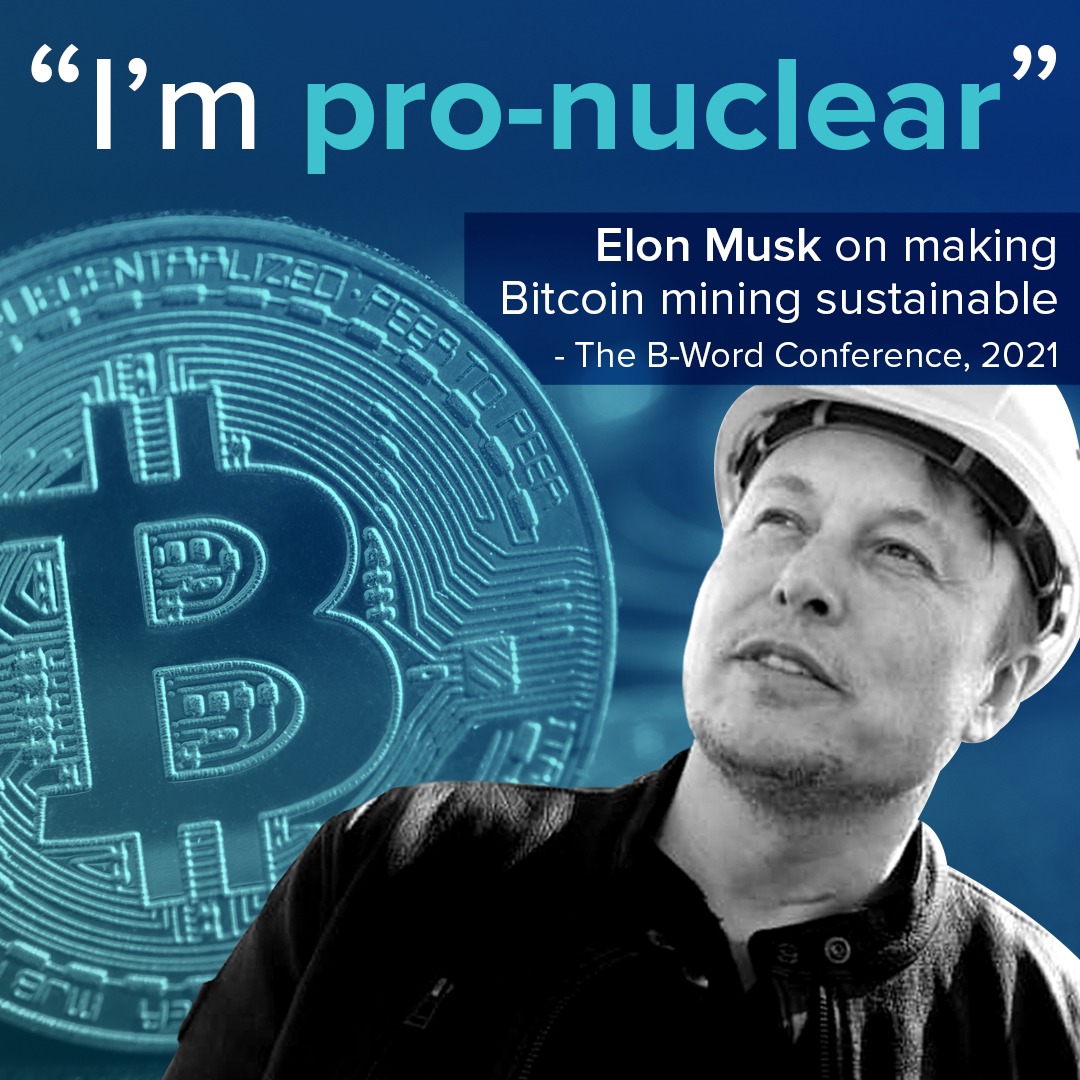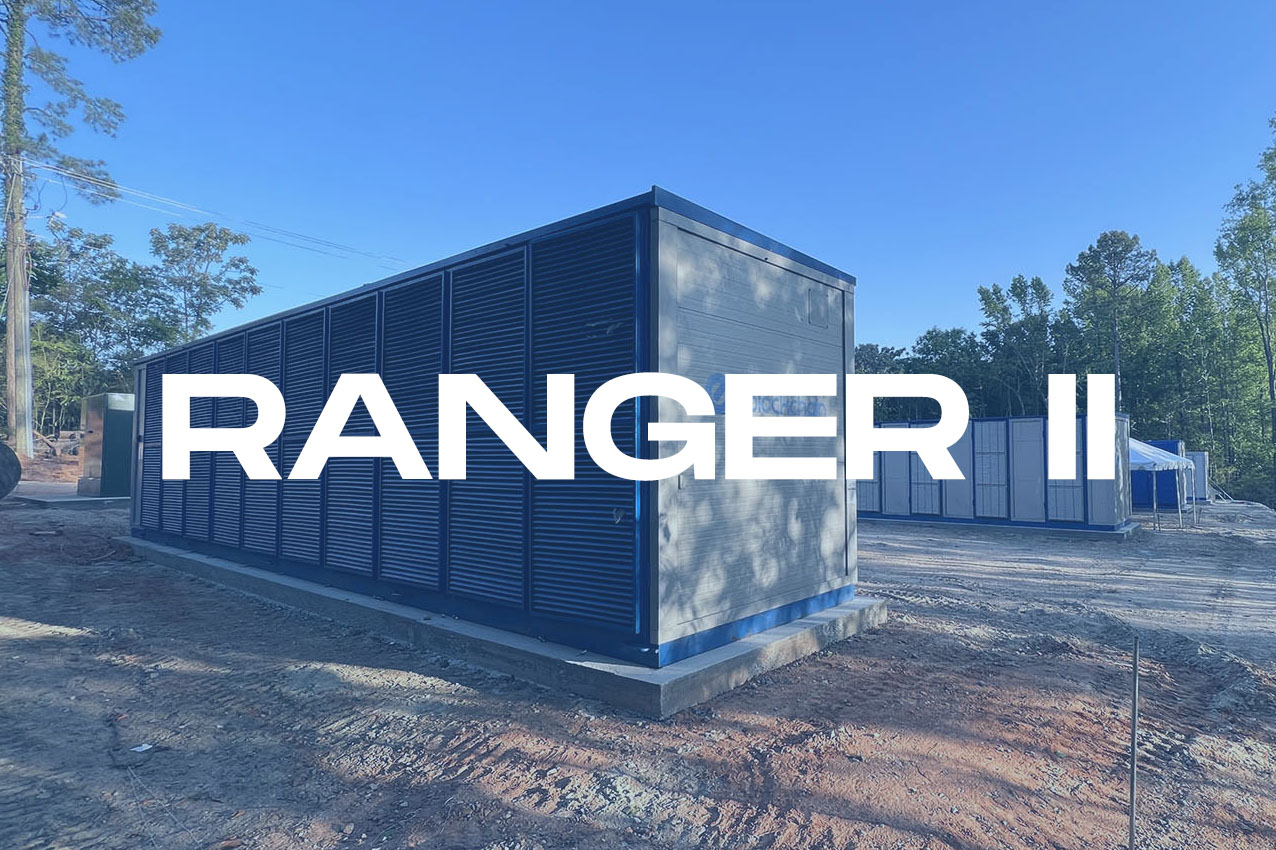Stay up to date with the latest news, announcements, and articles.
- But Just How Much Energy Does Crypto Mining Consume?
- Elon Musk Believes in Crypto Mining with Nuclear Power
- The Ominous Public Perception of Nuclear Energy
- Nuclear Challenges Met by Cryptocurrency Mining
- Where we are at the Moment on Nuclear Crypto Mining Solutions
- Current Interests in Nuclear Crypto Mining Solutions
- CHECK OUT Our Nuclear Powered Bitcoin Mining Project
- The Future of Nuclear Crypto Mining Solutions
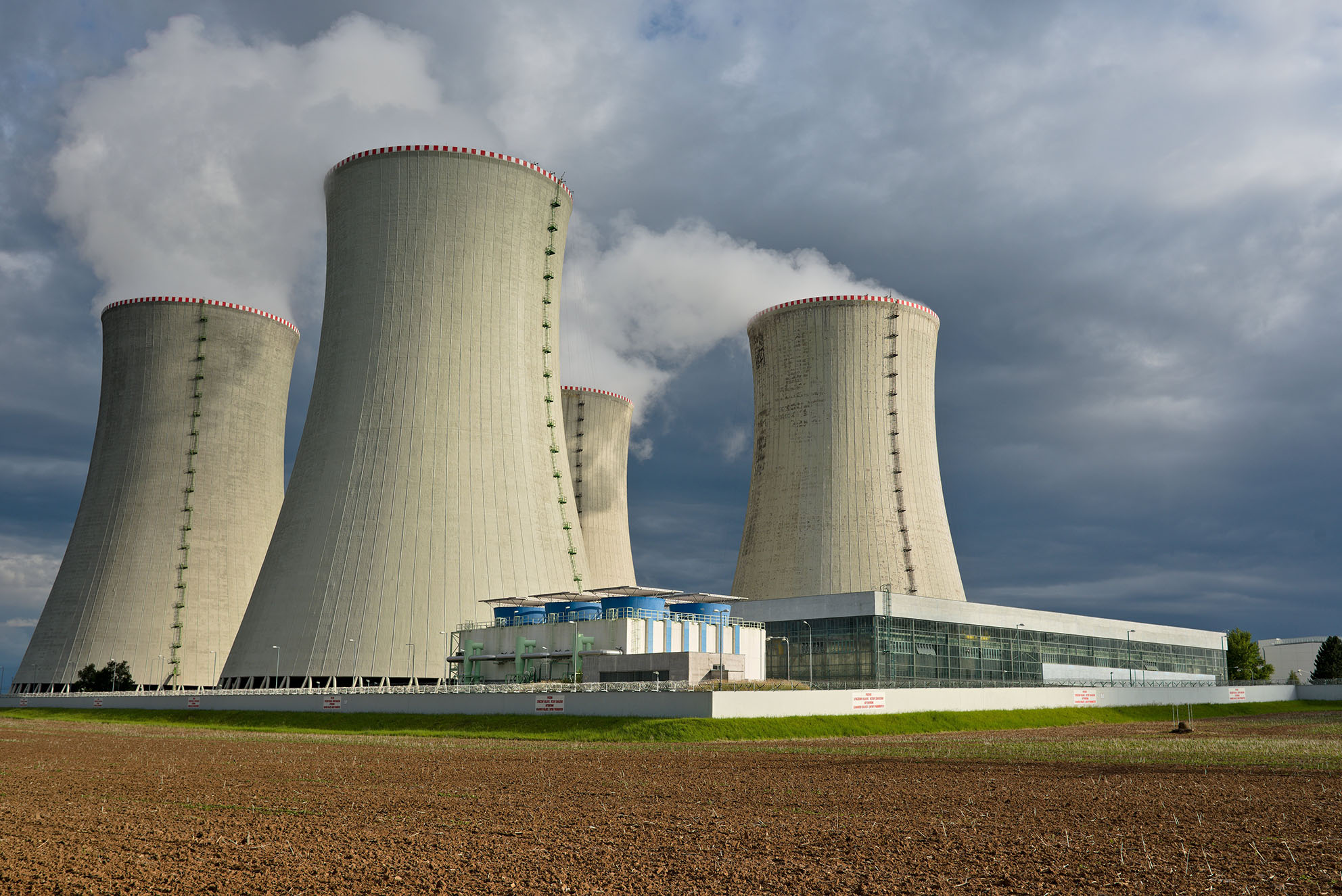
But Just How Much Energy Does Crypto Mining Consume?
As mining businesses scramble to develop more extensive facilities to cash in on the 21st-century gold rush, crypto’s need for electricity is expanding.
Joshua D. Rhodes of the Center on Global Energy Policy shed more light on this when he said that Bitcoin mining operations are in an arms race between time, the volume of miners, and the efficiency of their machines.”When it comes to Bitcoins’ energy use, it is currently something of a wildcatter market. The Texas grid operator ERCOT estimates that crypto miners may increase energy demand by up to 6 gigawatts by mid-2023, roughly the equivalent of adding another Houston to the grid,” he declared.
As crypto mining comes under sustained scrutiny for its increased energy use, the phenomena may be approaching a critical threshold where, to be a truly disruptive force, crypto must come clean and become green. Solar and wind energy have been considered, but neither of these shows the same promise for crypto mining as nuclear energy.
Elon Musk Believes in Crypto Mining with Nuclear Power
Musk, the Chief Engineer of SpaceX and the CEO of Tesla Motors, is very optimistic about the future of nuclear energy. Interestingly, the Billionaire Entrepreneur has always believed that most of the world’s electrical energy will eventually depend on solar and wind power. At Italian Tech Week, Musk changed his mind and announced that the world should use more and more nuclear energy and preserve the already existing nuclear power plants.
”We already own, I’m not saying we should build a bunch of nuclear plants, but I don’t think we should shut down the ones operating safely. People should really think positively of nuclear energy,” he added.
Musk gave an example of Germany’s decision to eliminate its nuclear power plants. As Musk explained, it was a decommission that left the country with no other choice but to rely more heavily on coal-fired power plants. A 2021 published research done on this matter showed that because the coin’s supply is limited, any excess demand could push prices even higher. Rising prices encourage more so-called mining activity and may consequently push CO2 emissions up even more, according to the Bank of America.
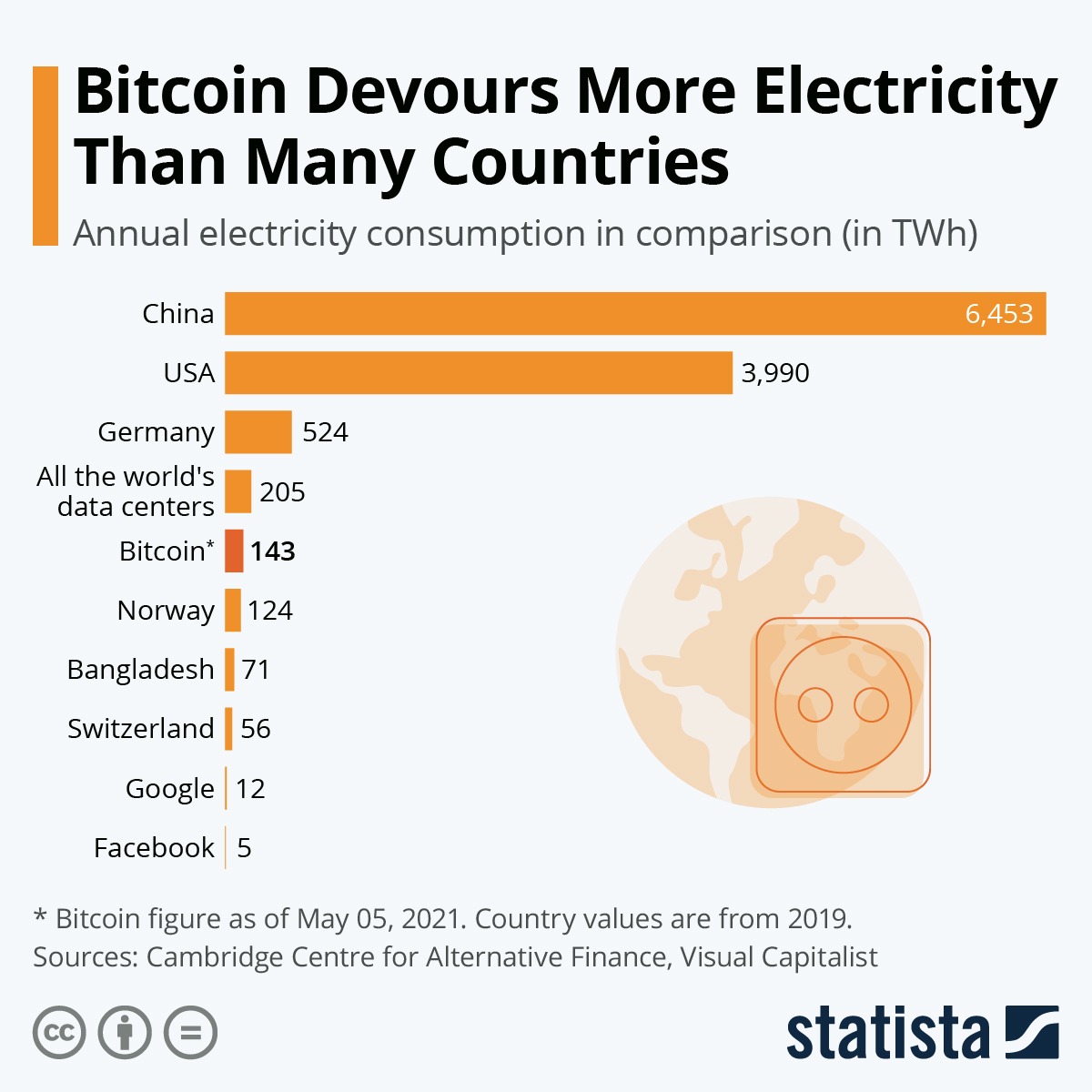
Other sources like coal plants were entirely replacing Germany’s nuclear energy; it was estimated that the increased pollution most likely led to 1,100 deaths per year.
Once again, Musk confirmed his preference for nuclear crypto mining solutions when in May 2021, his Tesla company stopped accepting bitcoin as payment for its vehicles. Musk made the move because overlooking the energy usage of bitcoin was “too sketchy” for an electric vehicle car company whose mission is to “[accelerate] the advent of sustainable energy,” he said at The B-Word conference hosted by the Crypto Council for Innovation in July.
”One option for cleaning up the energy used by Bitcoin is nuclear”, Musk said. “Hydro or geothermal are great as renewable means. I’m also pro nuclear,” Musk said. “I think modern nuclear power plants are safe contrary to what people may think.”
Elon Musk also recently tweeted his support for nuclear power to address Europe’s energy security and dependability problems, even volunteering to eat food grown near reactors to demonstrate that the energy source is safe.
Musk is correct in his support for nuclear power, whose advantages have been well-documented for years. It’s safe, dependable, and the country’s primary contributor to carbon-free electricity. In 2019, it prevented the release of more than 476 million metric tons of CO2, the equivalent of eliminating 100 million cars from the road.
Musk said bitcoin miners could mine effectively with wind and solar power using long-duration batteries to store the energy in the absence of wind or sunshine. However, Musk still believes nuclear energy would be a solution for miners looking for a reliable source of clean energy.
The Ominous Public Perception of Nuclear Energy
There’s a palpable sinister perception at the mere mention of nuclear energy. People generally have a sense of discomfort at the whisper of this alternative form of energy. This can be linked to the infamous accidents of the Chornobyl nuclear disaster that occurred on 26 April 1986 and the ill-famed Fukushima nuclear in 2011.
Understandably, the intimidating subject of nuclear energy can send shivers down the spines of these accidents. However, as Musk explained, the coal-burning plants that might be used in place of nuclear plants have the potential to cause much more damage and thus are way more dangerous when it comes to the overall health of humanity.
Additionally, some people tend to confuse nuclear fission with nuclear fusion. Fundamental knowledge of physics is perhaps needed to know the difference. In nuclear fission, one neutron interacts with a larger atom, splitting it in two. This is precisely what happens when we talk about conventional nuclear reactors. On the other hand, in nuclear fusion, smaller atoms interact with each other and, as a result, join together, creating a heavier atom, thereby releasing energy. For a long time, fusion has been the source of clean, safe, and relatively cheap energy.
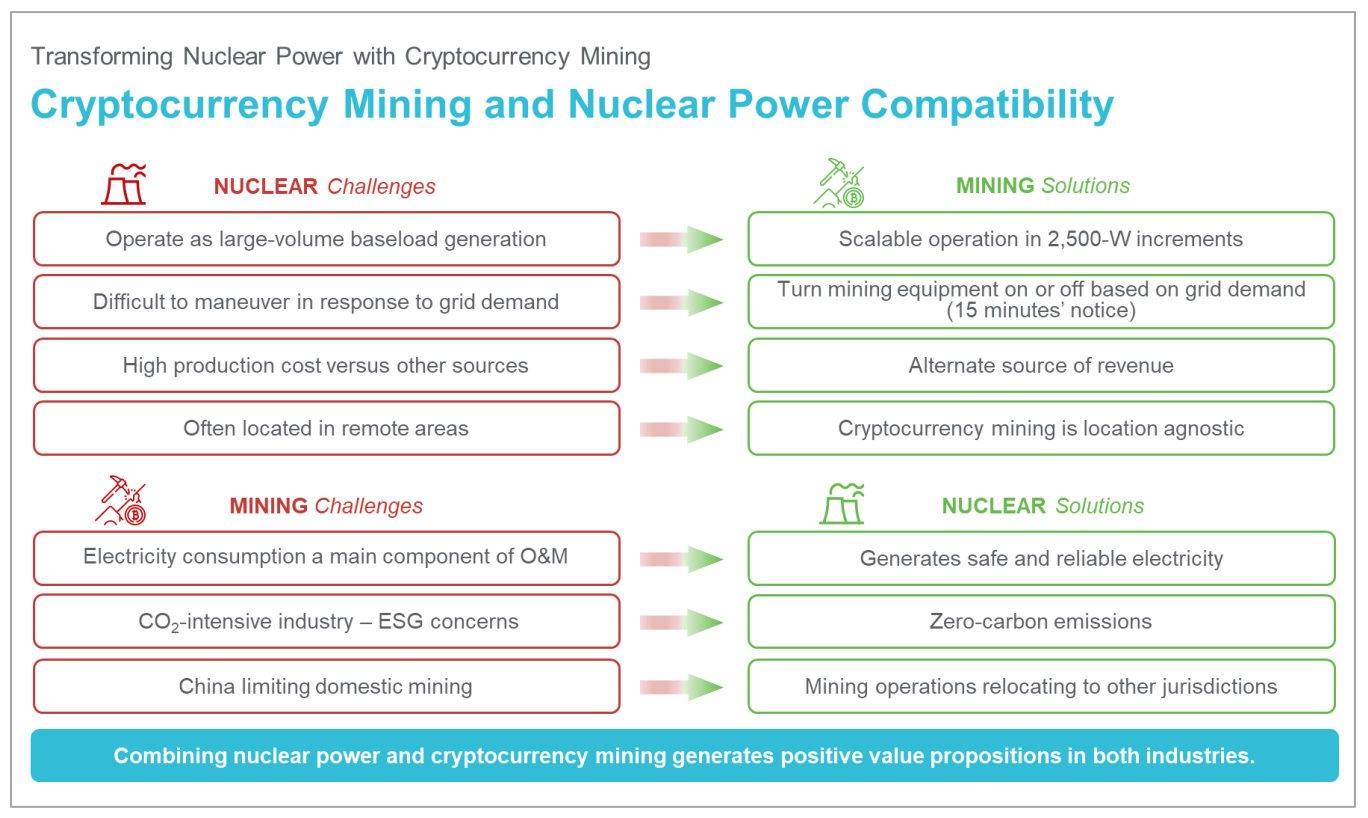
Nuclear Challenges Met by Cryptocurrency Mining
- On the local grid, nuclear power serves as a significant baseload power source. Due to most nuclear plant designs, which were intended to run continuously, plants are challenged to operate in markets with a high penetration of renewables and other intermittent power sources. This leads to the potential for excess nuclear power.
- Cryptocurrency mining can use up some of that extra power. Mining computers can be scaled in 2,500-W increments to accommodate the nuclear plant’s extra power. Furthermore, cryptocurrency mining can be turned on and off. When the plant’s power consumption is high, the mining process can be delayed and resumed when market demand is low.
- In some markets, nuclear power is finding it challenging to compete merely on price with other generation sources. Cryptocurrency mining provides a predictable, revenue-generating load for a nuclear plant’s extra power.
- Nuclear power stations are usually not close to load centers. Because crypto mining is geographically agnostic, co-location is a great choice.
Where we are at the Moment on Nuclear Crypto Mining Solutions
Until recently, China accounted for over 75% of all Bitcoin mining, owing to its low-cost electricity and gear. However, in 2021, China’s government abruptly ended decentralized digital currencies, claiming concerns about fraud, economic instability, and reaching its climate targets. Companies scrambled to find suitable locations with more accommodating policies. Kazakhstan is the final destination.
Kazakhstan has seen a large influx of miners this year, but if power grid concerns are not rectified, the country may have to forego the significant tax revenue generated by Bitcoin miners.
The influx of Bitcoin miners from China into Kazakhstan has exacerbated an energy shortage, which the president of the Central Asian country has proposed resolving with nuclear power.
The substantial increase in demand, according to the Kazakhstan Electrical Grid Corporation, has caused a domestic power supply constraint and contributed to an uneven electricity supply. During a meeting with financiers, President Tokayev said he believes that establishing a nuclear power plant will help relieve the strain on his country’s electrical infrastructure: “In the future, we will have to make an unpopular decision about the construction of a nuclear power plant.” While Tokayev made no mention of Bitcoin mining electricity usage in his proposal, failing to keep miners in the country might negatively impact the projected $1.58 billion in tax revenue they generate. Xive, a Bitcoin mining marketplace, has already left Kazakhstan due to power constraints. Didar Bekbau, the co-founder of Xive, said in a Tuesday tweet that he had to shut down his company’s mining farm due to restricted electricity supply from the grid.
It’s worth noting that Kazakhstan presently has 50 registered crypto mining companies and an unspecified number of unregistered ones. For a country that endured catastrophic nuclear fallout from weapons testing during the Soviet occupation, the idea of developing new nuclear power plants is a serious one. Kazakhstan’s last nuclear power station was shut down in 1999. Currently, around 88 percent of the transcontinental country’s electricity comes from fossil fuel-burning power facilities.
Current Interests in Nuclear Crypto Mining Solutions
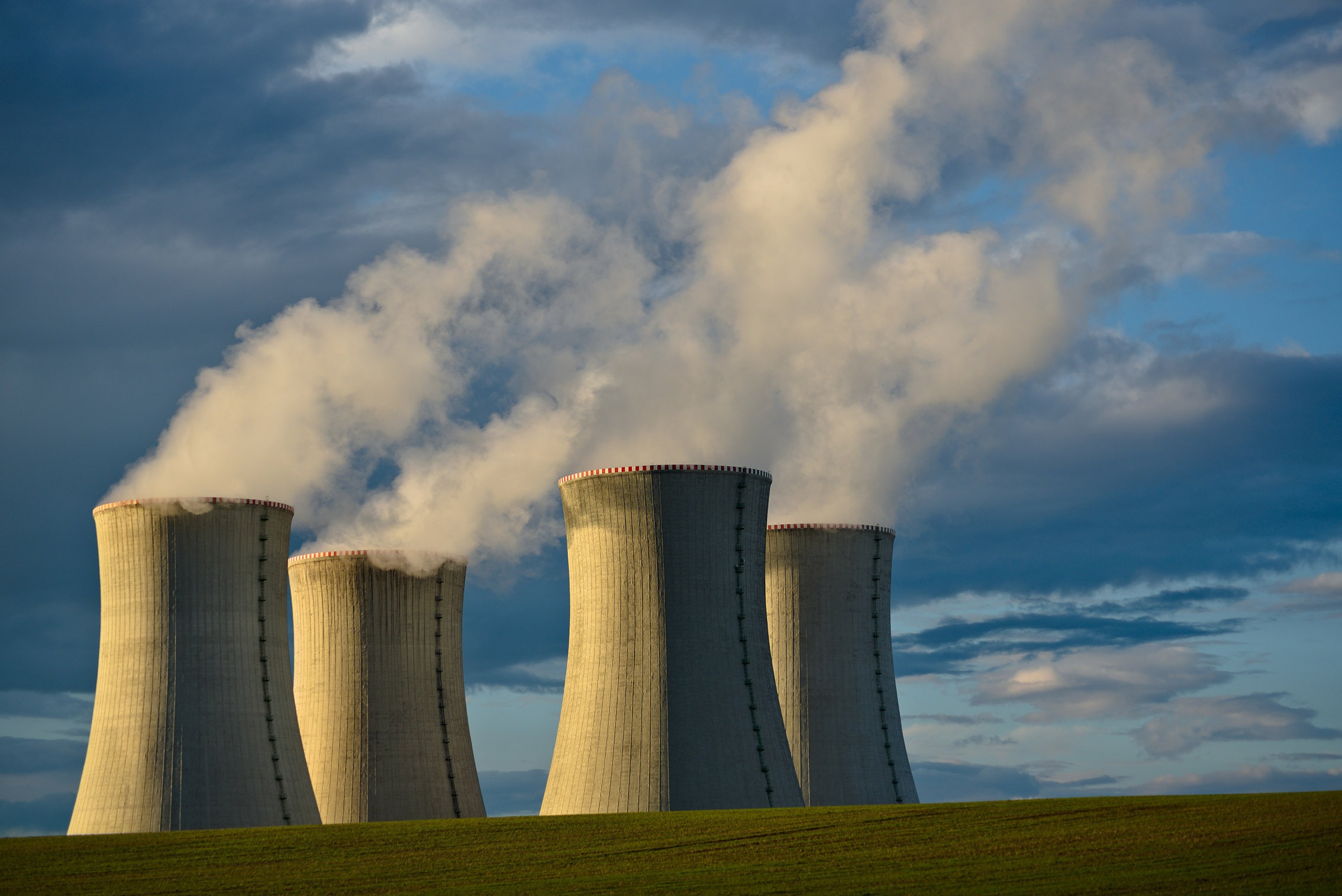
Alex Gilbert, a project manager for a nuclear power think tank, the Nuclear Innovation Alliance, revealed that partnerships and collaborations have been ongoing between power brokers in the nuclear power sector and authorities in bitcoin mining.
In July of 2021, Ohio-based energy company, Energy Harbor Corp, announced that from December 2021, it was set to provide nuclear power to Standard Power’s new Bitcoin blockchain mining center located in Coshocton, Ohio.
Additionally, Texas and Pennsylvania-based Talen Energy revealed that plans are underway to create a cryptocurrency mining facility and data center close to its nuclear power plant in Berwick, Pennsylvania. According to the company executives, it’s a project that is expected to be operational by the latter end of 2022.
”Though it may be a small start, the move by bitcoin miners to carbon-free energy resources like nuclear energy reflects emerging concerns in the cryptocurrency industry about ensuring their operations are green,” Gilbert says. “Previously, the industry relied heavily on coal generation, with its attendant health impacts and large carbon emissions.”
While still a nascent trend, that may change. “Looking forward, nuclear energy is one of several options to decarbonize cryptocurrencies,” Gilbert says.
CHECK OUT Our Nuclear Powered Bitcoin Mining Project
The Future of Nuclear Crypto Mining Solutions
By many definitions, nuclear energy is not renewable. But in terms of climate change, nuclear energy production does not release greenhouse gases, so it is a low-carbon fuel.
Advocates of the blockchain note that they are innovative technologies whose potential we’ve only just begun to explore. There are certain inefficiencies in our financial services industry that can be alleviated using blockchain technologies, enabling us to tackle important issues such as equity, access, and costs, said R.A. Farrokhnia, Executive Director of Columbia’s Advanced Projects and Applied Research in Fintech.
Still, such a promise may not be enough for skeptics, especially at such a high price. However, crypto could have another opportunity to promote its worth outside of its financial portfolio: by leading the move to sustainable energy sources.
As the industry progresses, a majority switch from fossil-generated electricity to nuclear energy is hoped for.
EZ Blockchain is an innovative green Bitcoin mining company that started in 2017 as a data center hosting solutions provider for cryptocurrency mining. Today, it is a vertically integrated cryptocurrency mining company exercising complete control of the power generation cycle. The company has offices in Los Angeles, Chicago, Houston, and multiple other locations in the US, where it provides the mining infrastructure for energy businesses at the lowest power costs.
It seeks to tackle the global waste energy issue using crypto mining. As an energy-oriented tech company, EZ Blockchain connects the digital assets space with the energy industry to optimize energy use by using Bitcoin mining to solve wasted energy problems.
At EZ Blockchain, we want to turn Bitcoin’s energy-intensive mining into an opportunity, and a tool to solve the global energy waste problem.
Fill out a form and our bitcoin mining expert will contact you.
FREE CONSULTATIONchoose
a miner
profit and
understand data?
business remotely
with EZ Blockchain?
Fill out a form and our bitcoin mining expert will contact you.


